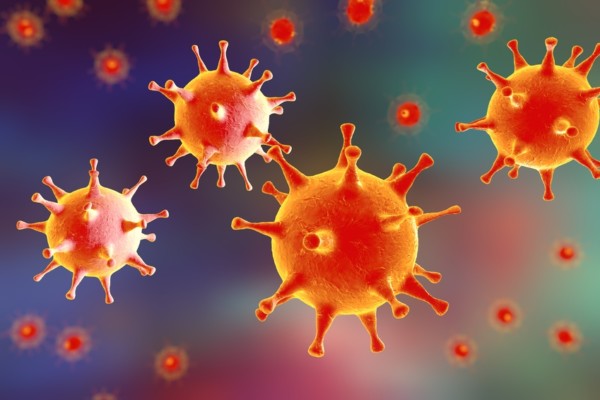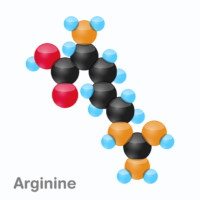Contents
What is lysine?
Lysine is one of the eight essential amino acids and one of the 22 proteinogenic amino acids. The human body cannot produce essential amino acids, therefore we need to include these in our diet.
[TUBE]v1ih8Z_bLQ0[/TUBE]
Health benefits
Lysine is particularly important for the immune system as it has a crucial role in developing antibodies. Additionally this amino acid has important antiviral properties. Studies have shown that it is especially beneficial for safeguarding against the herpes virus.
Scientists have also found evidence that it increases the effectiveness of L-arginine in promoting human growth hormone (HGH) release. Suminski and colleagues found that HGH levels were greater when weightlifters ingested arginine and lysine without exercise1.
Additionally, scientists have found that this amino acid can help to reduce anxiety 2. It also plays an integral part in protein biosynthesis. The body uses lysine to build collagen together with the amino acids glycine and proline. Therefore if you have a deficiency of this amino acid you may suffer from broken skin, fragile nails and in extreme cases hair loss.
Lysine and the herpes virus
Arginine is an amino acid which encourages the Herpes Simplex Virus (HSV) to replicate. Lysine on the other hand can help treat HSV due to its well-researched immune-enhancing and tissue-healing properties. However, blood serum arginine levels should be low for effective HSV inhibition by lysine3. Once infected, controlling HSV recurrences through diet is based on a person’s ability to regulate their lysine/arginine balance.
This downside of this theory is achieving the correct balance of arginine and lysine through diet alone is very difficult and restrictive. Furthermore there is research to suggest that upsetting the delicate balance of these two amino acids may decrease natural immunity. Arginine, previously thought of as non-essential and now reclassified to semi-essential, has been shown to be important for enhancing immune response4,5.
In other words, increasing lysine can be helpful against the herpes virus but if this is a long-term choice, it may be harmful. This is because of the detrimental impact on your immune system. It is best to consult with your doctor to determine the best treatment and preventative options for you.
Dietary sources
Good sources of this essential amino acid include fish, eggs, cheese, lima beans, potatoes, red meat, milk, yeast, and soy products.
Side effects
Scientists have found that this amino acid can reduce blood sugar levels in patients with type 2 diabetes6. Supplements may also reduce blood clotting., therefore they should not be taken in certain cases including before surgery. If in doubt, check with your doctor.
Dosage guidelines
The RDI (Recommended Daily Intake) for lysine is 38 mg per kilo per day. Therefore the daily total for a 60kg (132 lbs) female is 2,280 mg, and for an 80kg (176 lbs) male the daily total is 3,040 mg .
As a rough guide, scientists recommend taking between 500mg and 1,500 mg daily for the prophylaxis of herpes simplex, ideally in combination with zinc and vitamin C. The daily dose for treatment of an active herpes simplex infection should be 3,000 mg per day.
To improve the insulin resistance during the treatment of diabetes mellitus, scientists recommend 1,000mg per day. Ideally you should combine this with other antioxidant nutrients and amino acids such as arginine and carnitine.
However before starting supplementation, you should consult your doctor to check that this amino acid will not interfere with any underlying health conditions.
References
- Suminski RR, Robertson RJ, Goss FL, Arslanian S, Kang J, DaSilva S, Utter AC, Metz KF. Acute effect of amino acid ingestion and resistance exercise on plasma growth hormone concentration in young men. International Journal of Sport Nutrition. Internet. 1997. 7(1):48-60. Available from: https://www.ncbi.nlm.nih.gov/pubmed/9063764 ↩
- Smriga M, Ando T, Akutsu M, Furukawa Y, Miwa K, Morinaga Y. Oral treatment with L-lysine and L-arginine reduces anxiety and basal cortisol levels in healthy humans. Biomedical Research (Tokyo, Japan). Internet. 2007. 28(2):85-90. Available from: https://www.ncbi.nlm.nih.gov/pubmed/17510493 ↩
- Maggs DJ, Collins BK, Thorne JG, Nasisse MP. Effects of L-lysine and L-arginine on in vitro replication of feline herpesvirus type-1. American Journal of Veterinary Research. 2000. 61(12);1474-8. Available from: http://www.ncbi.nlm.nih.gov/pubmed/11131583 ↩
- Kang K, Shu XL, Zhong JX, Yu TT. Effect of L-arginine on immune function: a meta-analysis. Asia Pacific Journal of Clinical Nutrition. 2014. 23(3): 351-9. Available from: http://www.ncbi.nlm.nih.gov/pubmed/25164444 ↩
- Popovic PJ, Zeh HJ, Ochoa JB. Arginine and immunity, Journal of Nutrition. Internet. 2007. 137 (6 Suppl 2): 1681-1686. Available from: http://www.ncbi.nlm.nih.gov/pubmed/17513447 ↩
- Sulochana KN, Rajesh M, Ramakrishnan S. Insulin receptor tyrosine kinase activity in monocytes of type 2 diabetes mellitus patients receiving oral L-lysine. Indian Journal of Biochemistry and Biophysics. Internet. 2001, 38(5):331-4. Available from: https://www.ncbi.nlm.nih.gov/pubmed/11886082 ↩


